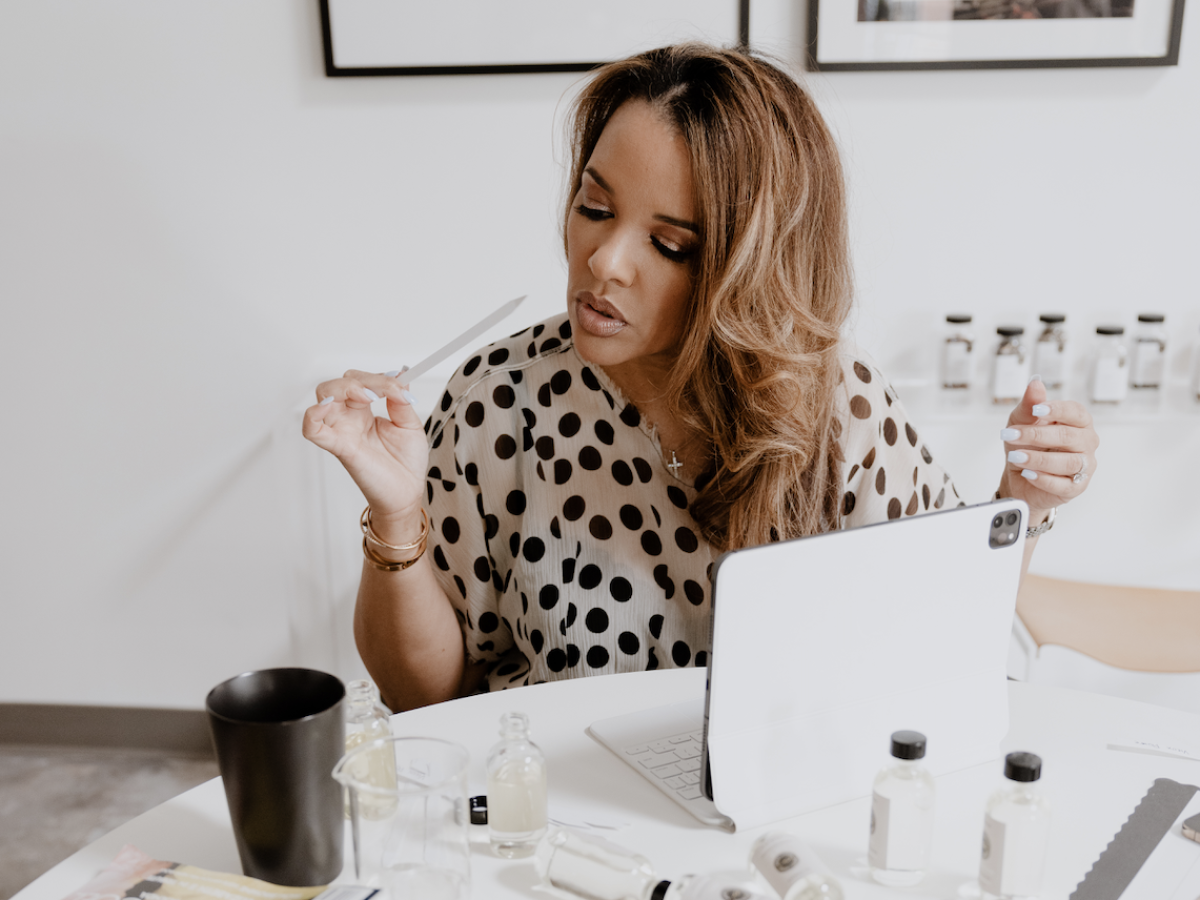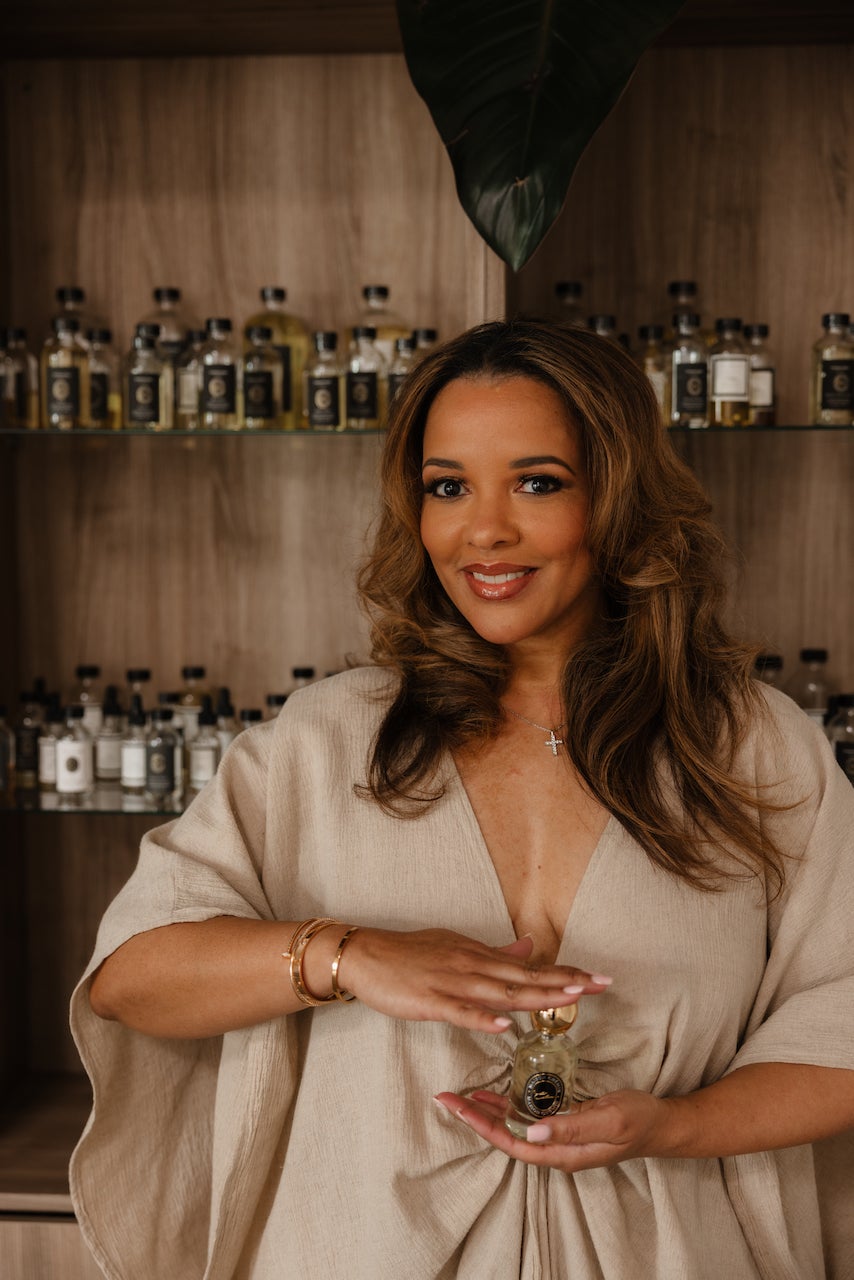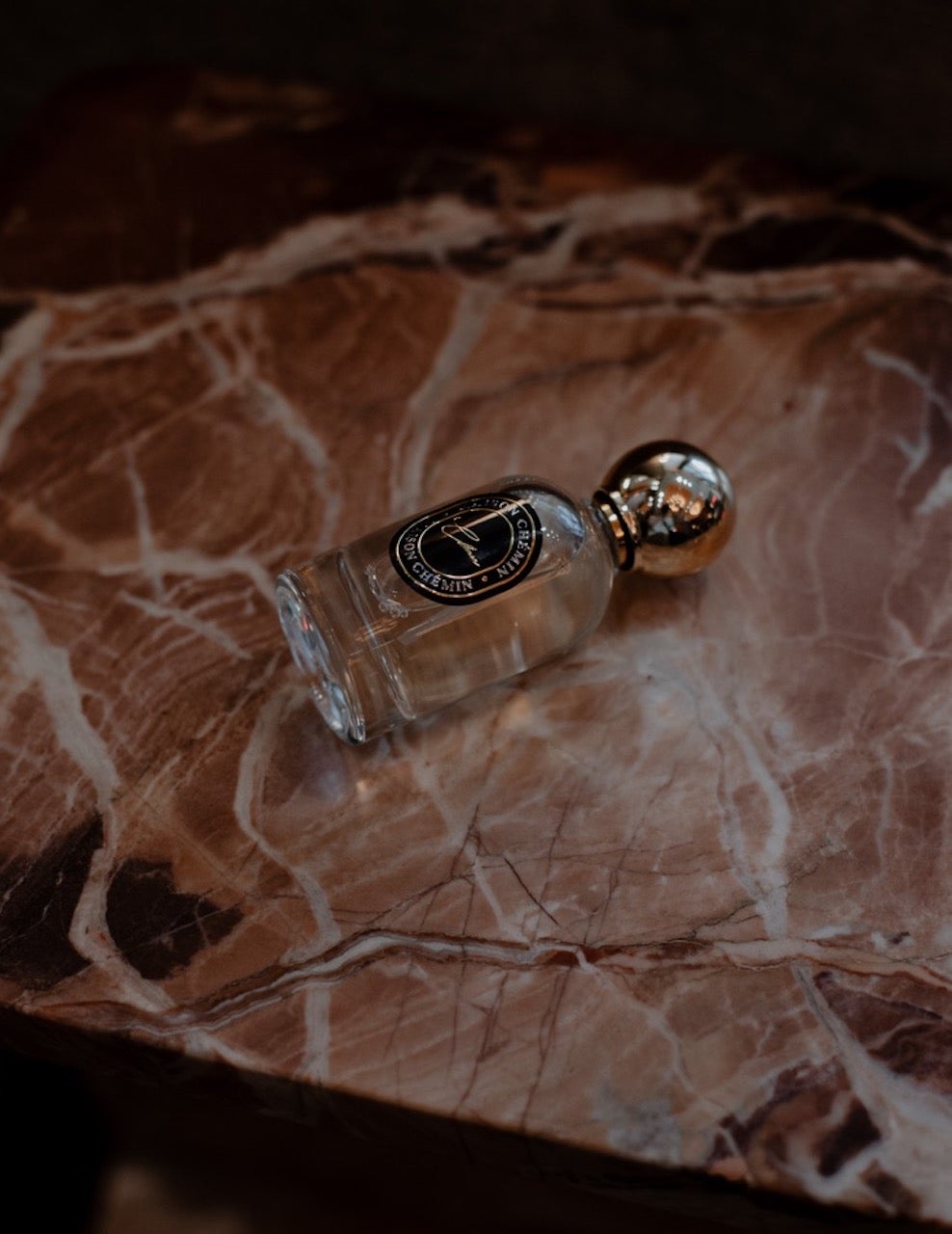
The fragrance industry has a diversity problem.
Black consumers are some of the biggest consumers of fragrance, with approximately 23 percent of women’s fragrance sales, despite only making up 14 percent of the United States population. Additionally, over 60% of Black and Hispanic consumers report they do not leave the house without wearing fragrance and it is part of their daily routines, which is significantly higher than white and Asian users, according to the latest findings from the 2022 “Fragrance Consumer Report” from NPD.
You would think in an industry where we make up so much of the market share, Black people would be represented more within the business side of the industry — however, like most cases, we are often shut out and discriminated against.
There’s one woman not only on a mission to diversify the industry, but leave it better than she found it.
Chémin, the Black-owned fragrance brand founded by Atlanta-Based perfumer November Nichols in 2017, recently teamed up with department store giant, JCPenney, marking its first retail partnership. This affordable luxury collection is available in stores both nationwide and online, including locations in Arizona, California, Florida, Georgia, Illinois, Louisiana, Maryland, North Carolina, New Jersey, Nevada, New York, Texas, and Utah. The collection features a collection of signature fragrances, along with body butters, crystal-infused body oils, Vitamin E sugar scrubs, charcoal scrubs, and lotions, allowing consumers the opportunity to experience a luxury fragrance house at an affordable price point.

“I am very proud of our new partnership with JC Penney,” says Nichols. “As an indie fragrance house founded, owned and operated by a black woman, this is obviously a huge deal — as this is the first time a major retailer has gotten behind a Black owned fragrance brand in this way.”
With Chémin, Nichols is one of the only Black women owned brands in the fragrance industry, and because of this, she’s been fraught with challenges throughout her journey, but she hasn’t let the adversity stop her. “As a woman in perfumery, a lot of times, people don’t take you seriously,” she shares. “They also don’t necessarily want to help you.”
She continues, “The fragrance industry is a very lucrative industry. It’s a $60 billion industry slated to be $87-plus billion by 2028. This is a huge industry, and there’s a lot of money to be made in the fragrance industry. But obviously there are big names that dominate the industry that make it very difficult for smaller houses like Chémin to compete. When you have the huge marketing budgets like the Estee Lauders and the LVMHs and all of those entities that are there, they have the budgets to do everything. Whereas when you’re an owner of an indie fragrance house, a small one like ours, we don’t have the same kind of budgets that they have to operate with.”
Perfumery schools, while helpful in terms of learning the ins and outs of the industry, tend to be pretty exclusive and attending them isn’t always an option for Black women for more reasons than one. Despite the fact, Chémin is currently the only Black brand with their own fragrance house in the world.

“The Black dollar —our dollar — is so powerful,” says Nichols. “We spend, we spend, we spend. And if we just are intentional about that spend, we can change a lot of lives.”
As far as her favorite scent profiles when creating her fragrances, Nichols loves to experiment. “I lean into the warmer notes and accords,” says Nichols. “I love the ambers. I love the ouds. I love a scent that feels like a warm hug.” The Chémin lineup includes: Parfum 1 (Lemongrass, White Tea, Sandalwood), Parfum 17 (Bamboo, Citrus, Vetiver), Parfum 37 (Jasmine, Pomelo, Oud), Parfum 77 (Santal et Vanille), and Parfum 87 (Leather, Oud, Tobacco). In addition to fragrances, customers can also get body butters, crystal-infused body oils, Vitamin E sugar scrubs, charcoal scrubs, and lotions.
You can explore the Chémin collection for yourself at J.C.Penney.





